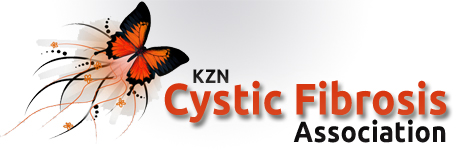Genito-urinary & related problems
Fertility & Pregnancy
Men who have CF are usually infertile. This should be confirmed after puberty using sperm analysis. Although sperm is produced in the testes and sexual drive and performance are normal, there is blockage or absence of the vas deferens preventing the sperm travelling from the testis to the penis. In certain centres it is now possible to use sperm aspirated from the testes of men with CF for in vitro fertilisation.
Although women with CF may have diminished fertility, they can conceive normally. If a woman with CF intends becoming pregnant, this should be discussed with a CF physician. Those with advanced lung disease (FEV1 <1,6l) should be advised against pregnancy. In cases where the lung function is satisfactory, genetic counselling should be offered. If the partner is a CF carrier the chance of offspring being affected is 1 in 2. Prospective partners should be screened for carrier status.
Pregnancy and lactation exert a nutritional strain on the mother and the nutrition of every mother who has CF should be augmented according to her clinical condition and circumstances. Successful breast feeding in mothers who have CF is possible. Women with CF can use any of the methods of contraception available. It should however be discussed with a doctor. Men with CF should not assume that they are infertile. Safe sex should be practised to avoid unintended pregnancy and sexually transmitted infections.
Urinary Incontinence
Urinary incontinence (UI) is common in the female CF population and onset has been reported as young as 9 – 11 years. Some males also show mild symptoms of
urinary incontinence. Coughing, forced expiratory techniques, sneezing and laughing are the main causes of UI, and this affects both airway clearance and daily life. It is necessary to ask the patient about UI as most people are too embarrassed to mention the problem. As the occurrence and severity of UI increases as the disease progresses, it is important to teach pelvic floor exercises and controlled coughing to all pre-pubertal girls, and where necessary to include electrical stimulation, biofeedback and bladder training.

